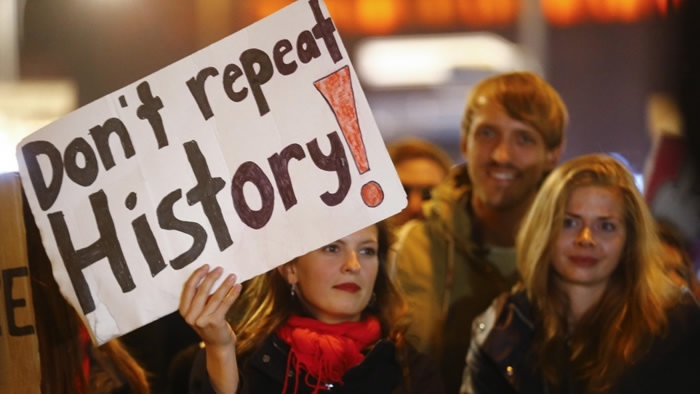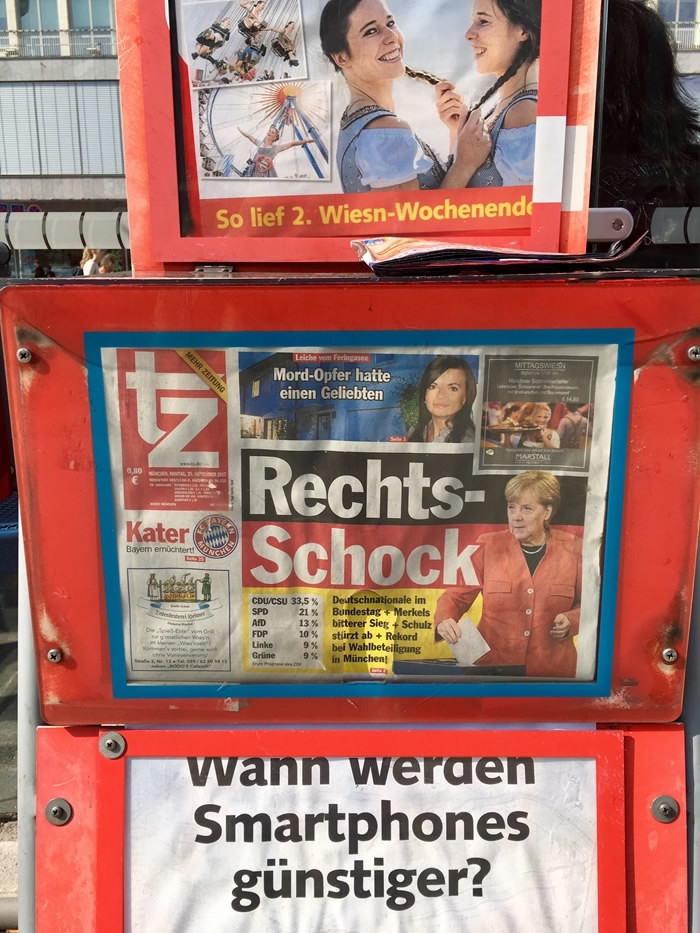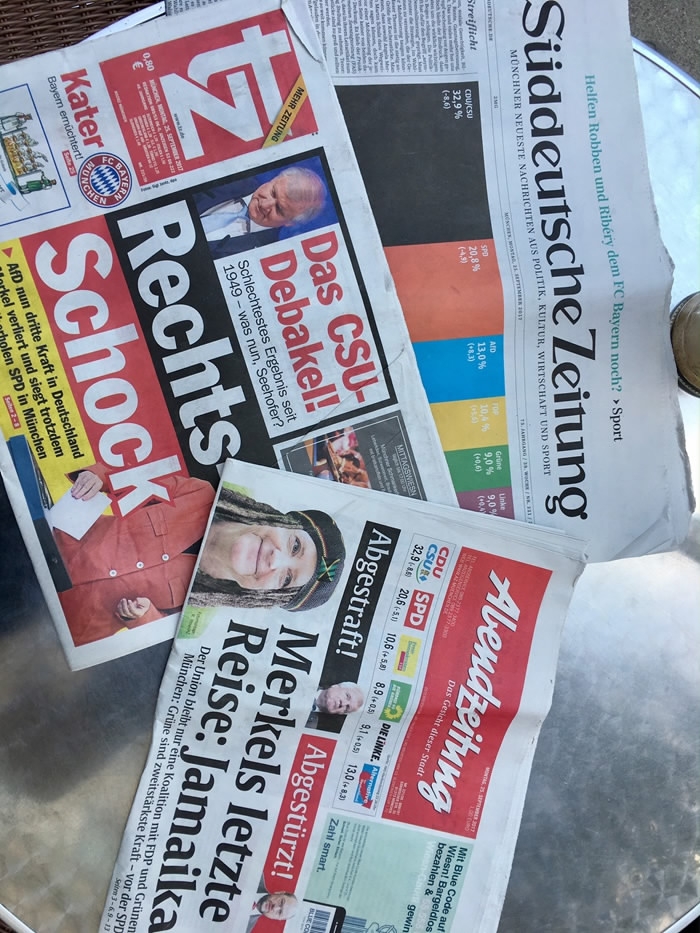
Politics
20:54, 25-Sep-2017
Rise of far right ends predictable German politics
By Natalie Carney Gerçik

On Monday, Germans woke to what is likely to be the beginning of a rather difficult four years for their new government or Bundestag.
Long-standing German Chancellor Angela Merkel's central right Christian Democratic Union Party (CDU) came out on top with 32.9 percent of the votes, more than eight percent less than their 2013 election numbers and the lowest amount of votes the party has received since World War II, signalling clear disappointment in her leadership among the majority of Germans.
Immigration and economic policies are some of the top issues in which Germans find fault with Merkel.

Germans wake to the "shock" of the far right nationalist anti-Islam party Alternative for Deutschland entering parliament with 13 percent of the vote, September 25, 2017. /CGTN Photo
Germans wake to the "shock" of the far right nationalist anti-Islam party Alternative for Deutschland entering parliament with 13 percent of the vote, September 25, 2017. /CGTN Photo
As the leader of the CDU she now must begin coalition negotiations to fill out the 51 percent needed to form the next government.
The central left Social Democratic Party (SPD), which has run the country with the CDU during eight of the last 12 years, came in second with 20.6 percent of the votes, but say they will not return to any coalition.
That leaves Merkel with little choice.
The most likely partnership is what is being dubbed the "Jamaica coalition" for the campaign colors black, green and red of the involved parties – the liberals or Free Democratic Party and the Greens. Together their union would fill 52.4 percent of the Bundestag seats.
However, these two smaller parties are bitter enemies and differ vastly in a number of the areas, including immigration and the environment.
Even more pressing is the FDP's opposition to any further Eurozone integration, which will make it more difficult for Merkel to support French President Emmanuel Macron's Eurozone reforms.

Headlines across Germany the morning after the historic federal elections, September 25, 2017. /CGTN Photo
Headlines across Germany the morning after the historic federal elections, September 25, 2017. /CGTN Photo
Meanwhile, the anti-immigration, anti-Islam party Alternative for Deutschland proved the big winner of the night pulling in 13 percent of the German votes and became the first far right nationalist party to enter the parliament since World War II.
This will allow them not only a larger platform, but access to the funds and other resources all parliamentary parties are entitled to.
Their leader has vowed to "get their country and people back again" and make it difficult for Germany's next coalition government.
So long gone are the days of predictable and mundane German politics.
7368km

SITEMAP
Copyright © 2018 CGTN. Beijing ICP prepared NO.16065310-3
Copyright © 2018 CGTN. Beijing ICP prepared NO.16065310-3